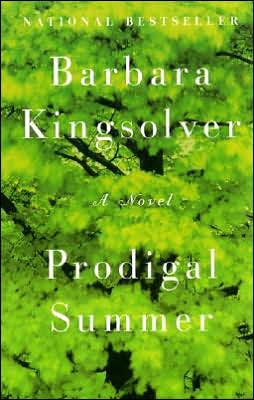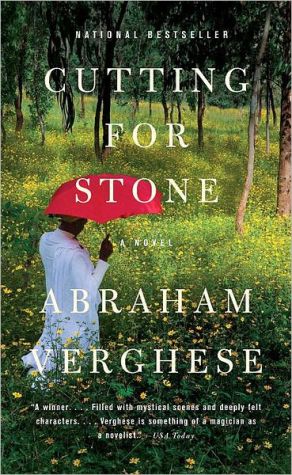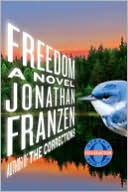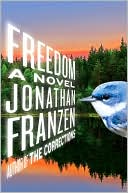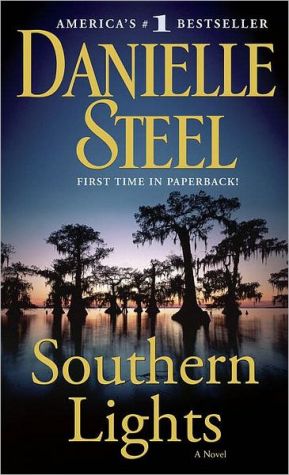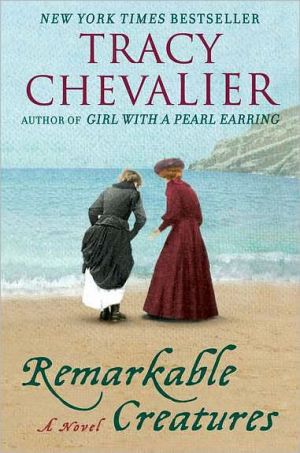Prodigal Summer
Barbara Kingsolver's fifth novel is a hymn to wildness that celebrates the prodigal spirit of human nature, and of nature itself. It weaves together three stories of human love within a larger tapestry of lives amid the mountains and farms of southern Appalachia. Over the course of one humid summer, this novel's intriguing protagonists face disparate predicaments but find connections to one another and to the flora and fauna with which they necessarily share a place.\ \ \...
Search in google:
Over the course of one humid summer, as the urge to procreate overtakes the countryside, these characters find their connections to one another and to the flora and fauna with whom they share a place. With the complexity that characterizes Barbara Kingsolver's finest work, Prodigal Summer embraces pure thematic originality and demonstrates a balance of narrative, drama, and ideas that render it an inspiring work of fiction.Creative Loafing... a story of the many ways to define family — human or not ... full of joy, warmth, and sweet surprise.
Chapter One\ \ \ Predators\ \ \ Her body moved with the frankness that comes from solitary habits. But solitude is only a human presumption. Every quiet step is thunder to beetle life underfoot; every choice is a world made new for the chosen. All secrets are witnessed.\ If someone in this forest had been watching her -- a man with a gun, for instance, hiding inside a copse of leafy beech trees -- he would have noticed how quickly she moved up the path and how direly she scowled at the ground ahead of her feet. He would have judged her an angry woman on the trail of something hateful.\ He would have been wrong. She was frustrated, it's true, to be following tracks in the mud she couldn't identify. She was used to being sure. But if she'd troubled to inspect her own mind on this humid, sunlit morning, she would have declared herself happy.\ She loved the air after a hard rain, and the way a forest of dripping leaves fills itself with a sibilant percussion that empties your head of words. Her body was free to follow its own rules: a long-legged gait too fast for companionship, unself-conscious squats in the path where she needed to touch broken foliage, a braid of hair nearly as thick as her forearm falling over her shoulder to sweep the ground whenever she bent down. Her limbs rejoiced to be outdoors again, out of her tiny cabin whose log walls had grown furry and overbearing during the long spring rains. The frown was pure concentration, nothing more. Two years alone had given her a blind person's indifference to the look on her own face.\ All morning the animal trail had led her uphill,ascending the mountain, skirting a rhododendron slick, and now climbing into an old-growth forest whose steepness had spared it from ever being logged. But even here, where a good oak-hickory canopy sheltered the ridge top, last night's rain had pounded through hard enough to obscure the tracks. She knew the animal's size from the path it had left through the glossy undergrowth of mayapples, and that was enough to speed up her heart. It could be what she'd been looking for these two years and more. This lifetime. But to know for sure she needed details, especially the faint claw mark beyond the toe pad that distinguishes canid from feline. That would be the first thing to vanish in a hard rain, so it wasn't going to appear to her now, however hard she looked. Now it would take more than tracks, and on this sweet, damp morning at the beginning of the world, that was fine with her. She could be a patient tracker. Eventually the animal would give itself away with a mound of scat (which might have dissolved in the rain, too) or something else, some sign particular to its species. A bear will leave claw marks on trees and even bite the bark sometimes, though this was no bear. It was the size of a German shepherd, but no house pet, either. The dog that had laid this trail, if dog it was, would have to be a wild and hungry one to be out in such a rain.\ She found a spot where it had circled a chestnut stump, probably for scent marking. She studied the stump: an old giant, raggedly rotting its way backward into the ground since its death by ax or blight. Toadstools dotted the humus at its base, tiny ones, brilliant orange, with delicately ridged caps like open parasols. The downpour would have obliterated such fragile things; these must have popped up in the few hours since the rain stopped -- after the animal was here, then. Inspired by its ammonia. She studied the ground for a long time, unconscious of the elegant length of her nose and chin in profile, unaware of her left hand moving near her face to disperse a cloud of gnats and push stray hair out of her eyes. She squatted, steadied herself by placing her fingertips in the moss at the foot of the stump, and pressed her face to the musky old wood. Inhaled.\ “Cat,” she said softly, to nobody. Not what she'd hoped for, but a good surprise to find evidence of a territorial bobcat on this ridge. The mix of forests and wetlands in these mountains could be excellent core habitat for cats, but she knew they mostly kept to the limestone river cliffs along the Virginia-Kentucky border. And yet here one was. It explained the cries she'd heard two nights ago, icy shrieks in the rain, like a woman's screaming. She'd been sure it was a bobcat but still lost sleep over it. No human could fail to be moved by such human-sounding anguish. Remembering it now gave her a shiver as she balanced her weight on her toes and pushed herself back upright to her feet.\ And there he stood, looking straight at her. He was dressed in boots and camouflage and carried a pack larger than hers. His rifle was no joke -- a thirty-thirty, it looked like. Surprise must have stormed all over her face before she thought to arrange it for human inspection. It happened, that she ran into hunters up here. But she always saw them first. This one had stolen her advantage -- he'd seen inside her.“Eddie Bondo,” is what he'd said, touching his hat brim, though it took her a moment to work this out.\ “What?”\ “That's my name.”\ “Good Lord,” she said, able to breathe out finally. “I didn't ask your name.”\ “You needed to know it, though.”\ Cocky, she thought. Or cocked, rather. Like a rifle, ready to go off. “What would I need your name for? You fixing to give me a story I'll want to tell later?” she asked quietly. It was a...\ Prodigal Summer. Copyright © by Barbara Kingsolver. Reprinted by permission of HarperCollins Publishers, Inc. All rights reserved. Available now wherever books are sold.
\ From Barnes & NobleThe Barnes & Noble Review\ Following the phenomenal achievement of The Poisonwood Bible, Barbara Kingsolver has earned a reputation as a storyteller of deep compassion, wry humor, and moral conviction. Now her fifth novel, Prodigal Summer, reveals her to be in full possession of her gifts as she spins three poignant stories against the hardscrabble landscape of southern Appalachia, where creepers and Japanese beetles have exacted a toll on small farmers. Over the course of a long, hot summer, Kingsolver's big-hearted characters begin to grudgingly reconcile themselves with nature and find they can love one another, too. \ At the center of this sprawling tale is a pack of coyotes that has wandered into the territory that park ranger Deanne Wolfe patrols in the aftermath of her divorce. For two years Wolfe has subsisted alone, her solitude proof that she didn't need marriage in the first place. The coyotes are her only companions until Eddie Bondo shows up, with a 30-30 rifle slung over his muscled shoulder, wearing a winning smirk. Within a few hours of meeting they are tearing off each other's clothes as they writhe across the plank floors of Wolfe's log cabin. She eventually discovers that Eddie is more than just a freelance hunter and lothario: He's on a bounty mission to catch and kill her precious coyotes.\ Lusa Maluf Landowski faces a more wrenching choice between tending to her land and protecting her heart. A young widow burdened with a heavily mortgaged farm and ornery in-laws, she realizes it might be easier to mend her wounds if she moves on. And staying put would be a huge endeavor: Her barn needs a new roof, her tobacco plants aren't turning a profit, and she desperately craves companionship to fill the lonely hours at home. A few miles down the road, two elderly neighbors, Garnett Walker and Nannie Rawley -- one a devotee of pesticides, the other an organic farmer -- lock horns over whether God intended humankind to meddle with the environment. He rips down her "No Spray Zone" sign, while she accuses him of hubris. Despite their intransigent positions, they feed off each other's ardor and draw inevitably closer together.\ Erotic and poetic, Prodigal Summer is Kingsolver's most profoundly philosophical work. With prose that is as supple as a bobcat's tread, she paces deftly between each character's tale, as they search for deeper meaning in the natural world around them. Wolfe knows that by sheltering predators she's removed humankind from nature's equation and attempted to make a false Eden of the woods. Bondo, however, forces her to accept that she needs the companionship of her own species. Lusa and Garnett realize that to live off their land they need to cede it a certain respect. And by so doing, they awaken to a richer connection with the earth and a renewed belief in the essential importance of love.\ With a master's assured cadence, Kingsolver winds between these narratives, sprinkling them with telling details about Kentucky's flora and fauna. Moths, goats, and even snapping turtles are captured in their lush splendor. Kingsolver cleverly uses their behavioral patterns as a counterpoint to the petty wrangling of her human characters. Ultimately, though, she affirms that humans are only one link in the chain of life. Prodigal Summer offers a pointedly eloquent argument for the necessity to live within nature's strictures. In this regard, Kingsolver proves an adept moralist, one determined to raise our awareness of the prodigal ways we squander our greatest inheritance: the world in which we live.\ --John Freeman\ \ \ \ \ \ New York Times Book Review[An] extravagantly gifted narrative voice.\ \ \ People Magazine[Kingslover's] sexy, lyrical fifth novel renders our solitary yearnings with a finely trained eye and ear.\ \ \ \ \ US MagazineKingsolver deftly addresses the struggle between mankind and nature ... A lush ... novel of love and loss in Appalachia.\ \ \ \ \ New York Times Book Review[An] extravagantly gifted narrative voice.\ \ \ \ \ Glamour MagazineCompelling ... Lives that are less simple, and far more passionate, than they appear.\ \ \ \ \ People Magazine[Kingslover's] sexy, lyrical fifth novel renders our solitary yearnings with a finely trained eye and ear.\ \ \ \ \ Glamour MagazineCompelling ... Lives that are less simple, and far more passionate, than they appear.\ \ \ \ \ US MagazineKingsolver deftly addresses the struggle between mankind and nature ... A lush ... novel of love and loss in Appalachia.\ \ \ \ \ US MagazineKingsolver deftly addresses the struggle between mankind and nature ... A lush ... novel of love and loss in Appalachia.\ \ \ \ \ TimeKingsolver is a gifted magician of words.\ \ \ \ \ Wall Street JournalMs. Kingsolver's writing is generously well-grafted; choice moments ... radiate from nearly every page.\ \ \ \ \ Christian Science MonitorProdigal Summer is full of ... tenderness, humour and earthy spirituality ... Kingsolver's dialogue is absolutely natural, often funny, and sometimes heartbreaking.\ \ \ \ \ Creative Loafing... a story of the many ways to define family — human or not ... full of joy, warmth, and sweet surprise.\ \ \ \ \ San Francisco ChronicleA blend of breathtaking artistry, encyclopedic knowledge of the natural world ... and ardent commitment to the supremacy of nature.\ \ \ \ \ NewsweekA warm, intricately constructed book shot through with an extraordinary amount of insight and information about the wonders of the invisible world.\ \ \ \ \ Orlando SentinelA triumphant return to the southern Appalachians of her own childhood.\ \ \ \ \ Buffalo NewsAs lush, rich and abundant as nature itself ... Prodigal Summer is quietly breathtaking, and its vista awe-inspiring.\ \ \ \ \ People[Kingslover's] sexy, lyrical fifth novel renders our solitary yearnings with a finely trained eye and ear.\ \ \ \ \ GlamourCompelling ... Lives that are less simple, and far more passionate, than they appear.\ \ \ \ \ USKingsolver deftly addresses the struggle between mankind and nature ... A lush ... novel of love and loss in Appalachia.\ \ \ \ \ Publishers WeeklyHA beguiling departure for Kingsolver, who generally tackles social themes with trenchantly serious messages, this sentimental but honest novel exhibits a talent for fiction lighter in mood and tone than The Poisonwood Bible and her previous works. There is also a new emphasis on the natural world, described in sensuous language and precise detail. But Kingsolver continues to take on timely issues, here focusing on the ecological damage caused by herbicides, ethical questions about raising tobacco, and the endangered condition of subsistence farming. A corner of southern Appalachia serves as the setting for the stories of three intertwined lives, and alternating chapters with recurring names signal which of the three protagonists is taking center stage. Each character suffers because his or her way of looking at the world seems incompatible with that of loved ones. In the chapters called "Predator," forest ranger Deanna Wolfe is a 40-plus wildlife biologist and staunch defender of coyotes, which have recently extended their range into Appalachia. Wyoming rancher Eddie Bondo also invades her territory, on a bounty hunt to kill the same nest of coyotes that Deanna is protecting. Their passionate but seemingly ill-fated affair takes place in summertime and mirrors "the eroticism of fecund woods" and "the season of extravagant procreation." Meanwhile, in the chapters called "Moth Love," newly married entomologist Lusa Maluf Landowski is left a widow on her husband's farm with five envious sisters-in-law, crushing debts--and a desperate and brilliant idea. Crusty old farmer Garnett Walker ("Old Chestnuts") learns to respect his archenemy, who crusades for organic farming and opposes Garnett's use of pesticides. If Kingsolver is sometimes too blatant in creating diametrically opposed characters and paradoxical inconsistencies, readers will be seduced by her effortless prose, her subtle use of Appalachian patois. They'll also respond to the sympathy with which she reflects the difficult lives of people struggling on the hard edge of poverty while tied intimately to the natural world and engaged an elemental search for dignity and human connection. (Nov.) Copyright 2000 Cahners Business Information.\ \ \ \ \ Library JournalThis novel covers the expanse of one summer in the lives of several people in a remote area of southern Appalachia. The central theme tying three separate story lines together is the importance, and fragility, of the biological ecosystems found in the natural world. This precarious balance between humans and everything else--plants, bugs, moths, and mammals--is examined, tested, rejected, and rejoiced in by a collage of characters, who include Deanna Wolfe, the park ranger who tries to protect a pack of coyotes that miraculously appear on Zebulon Mountain; Lusa Landowski, a city girl with a degree in entomology who raises and sells goat kids; and feuding neighbors Garnett Walker and Nannie Rawley. To follow The Poisonwood Bible would be a daunting task for any writer; for Kingsolver, it would seem to be just about spinning another marvelous, magical yarn, only in a different locale and filled with another batch of endearing, honest people. This time her message is about the environment and intelligent women who are more comfortable with a love of nature than love with a man. Kingsolver reads her own words as lyrically as she writes them. Very highly recommended for all public and academic libraries with audio literature collections.--Gloria Maxwell, Penn Valley Community Coll., Kansas City, MO Copyright 2001 Cahners Business Information.\ \ \ \ \ Janet MaslinIn an improbably appealing book with the feeling of a nice stay inside a terrarium, Ms. Kingsolver means to illustrate the nature of biological destiny and provide enlightened discourse on various ecological matters. \ —New York Times\ \ \ \ \ Ron CharlesAs usual Kingsolver's dialogue is absolutely natural, often funny, and sometimes hearbreaking...With [her characters] she has created the most refreshing and funny love affair of the year...These three female protagonists struggle against a culture that denigreates them for not being "natural ladies," but in nature, they find far more profound ways to be women.\ —Christian Science Monitor\ \ \ \ \ Kirkus ReviewsA complex web of human and natural struggle and interdependency is analyzed with an invigorating mixture of intelligence and warmth. In a vividly detailed Appalachian setting, several seemingly incompatible lives come into initially troubling proximity during one event-filled summer. Wildlife biologist Deanna Wolfe has returned to her home territory to work at "trail maintenance" on lushly forested Zebulon Mountain, where a sighting of coyotes (not native to the area) excites her interest in "the return of a significant canid predator and the reordering of species it might bring about." Deanna's stewardship of this wilderness is compromised by her affair with "seasonal migrant" Eddie Bondo, whose pragmatic hunter's code challenges her determination to preserve nature red in tooth and claw. Their relationship, explored in chapters (ironically) entitled "Predators," is juxtaposed with the stories ("Moth Love") of former "bug scientist" and committed environmentalist Lusa Landowski, a widowed farm woman at odds with her late husband's judgmental (tobacco-growing) family, and feuding next-door neighbors Garnett Walker and Nannie Rawley ("Old Chestnuts"), whose contention arises when the herbicides employed to save his chestnut trees endanger her apple orchard. All of the aforementioned are interesting, complicated, ornery creatures themselves, and Kingsolver (The Poisonwood Bible, 19xx, etc.) has the good sense to present them in extended conversations (and arguments). The dialogue virtually leaps off the page as the various parties learn a great deal about one another—and themselves. The trap this ambitious story has laid for itself—an overabundance of discussion ofecologicalissues—is to a great extent avoided because its people's causes are shown to have developed credibly from their personal histories and present circumstances. Kingsolver doesn't hesitate to lecture us, but her lessons are couched in a context of felt life so thick with recognition and implication that we willingly absorb them. This deservedly popular writer takes risks that most of her contemporaries wouldn't touch with the proverbial ten-foot pole. Prodigal Summer is another triumphant vindication of her very distinctive art. \ \
